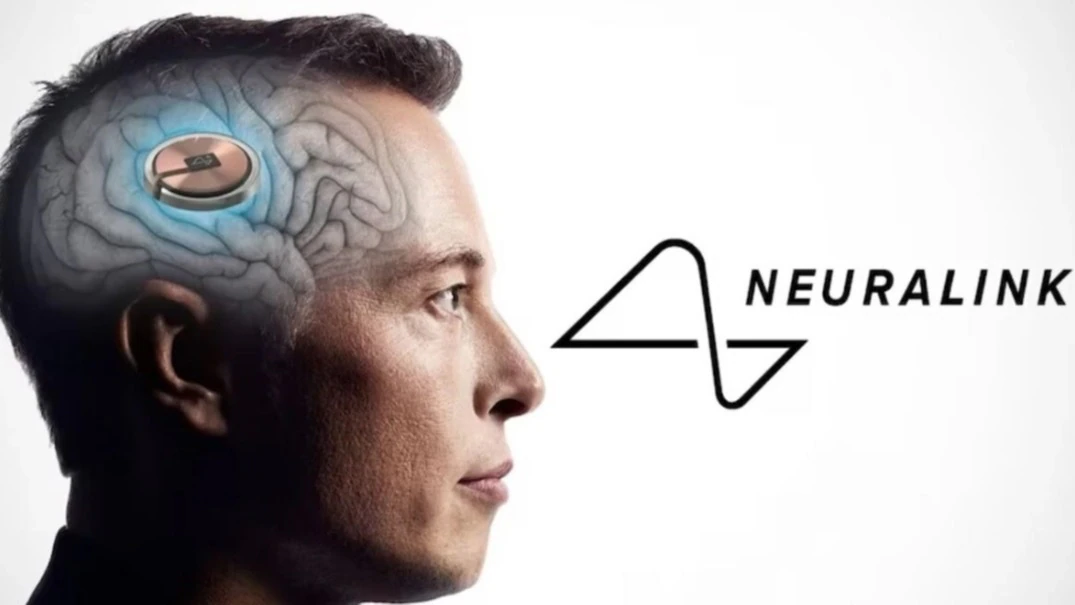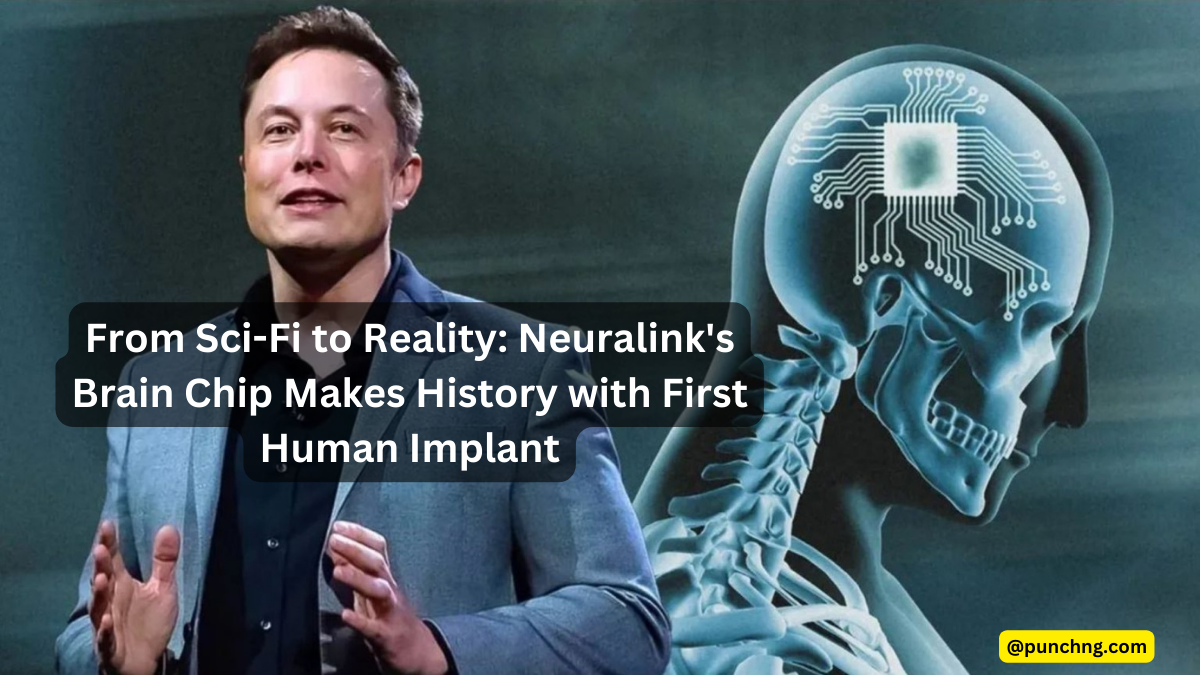In a move that pushes the boundaries of neuroscience and ethics, Elon Musk’s Neuralink has announced the successful implantation of a brain chip in its first human patient. This historical event marks a significant step towards a future where minds and machines directly interact, raising both hope and concern in equal measure.
Details about the patient and the specific procedure remain confidential, but Musk stated on social media platform X that the surgery took place last Sunday and the individual is recovering well. He further revealed promising neuron spike detection, the brain’s electrical signals that transmit information, hinting at the chip’s initial functionality.
This news arrives a year after Neuralink received FDA approval for its human trials, which primarily aim to restore communication and mobility for individuals with paralysis or neurological disorders. The chip, roughly the size of a small coin, is surgically implanted in the motor cortex and interacts with brain cells, translating neural activity into digital signals. These signals can then be used to control external devices, like robotic limbs or computer interfaces.
While the potential benefits of this technology are immense, the ethical implications are vast and complex. Concerns regarding privacy, security, and unintended consequences loom large. The ability to directly tap into the human brain raises questions about data ownership, potential manipulation, and the potential for exacerbating existing societal inequalities.

Experts in bioethics and neurotechnology caution against over-hyping the technology’s immediate prospects. The first human trial is primarily focused on safety and feasibility, with years of research and development likely needed before wider applications become a reality. Additionally, the long-term effects of implanting a foreign device in the brain, even at the microscopic level, remain largely unknown.
Despite the challenges, the successful implantation of Neuralink’s brain chip represents a watershed moment in the field of brain-computer interfaces. It opens doors to groundbreaking advancements in the treatment of neurological conditions, offering hope to millions struggling with paralysis and other debilitating ailments.
Furthermore, the potential of this technology extends beyond medical applications. Neuralink envisions a future where humans seamlessly interact with technology, using thought alone to control devices, access information, and even communicate telepathically. While this might sound like science fiction, the success of this first human trial suggests that such a future, once thought unimaginable, may be closer than we realize.

However, navigating this uncharted territory requires careful consideration of the ethical and societal implications. Open and transparent dialogue with scientists, ethicists, policymakers, and the public is crucial to ensure that the development and deployment of this transformative technology benefit all of humanity.
Other news:
Martian Marvel Makes a Comeback: NASA Reconnects with Ingenuity Helicopter
The story of Neuralink’s first human implant is just the beginning. As this technology continues to evolve, the world will watch with a mix of awe and trepidation, questioning what this new era of brain-computer interaction holds for our future.
By providing accurate and accessible information, sparking thoughtful conversations, and advocating for responsible development, we can ensure that this technological leap forward shapes a future that is not only groundbreaking, but also ethical and inclusive.

One Reply to “Elon Musk’s Neuralink Takes a Daring Leap: First Human Receives Brain-Computer Implant”